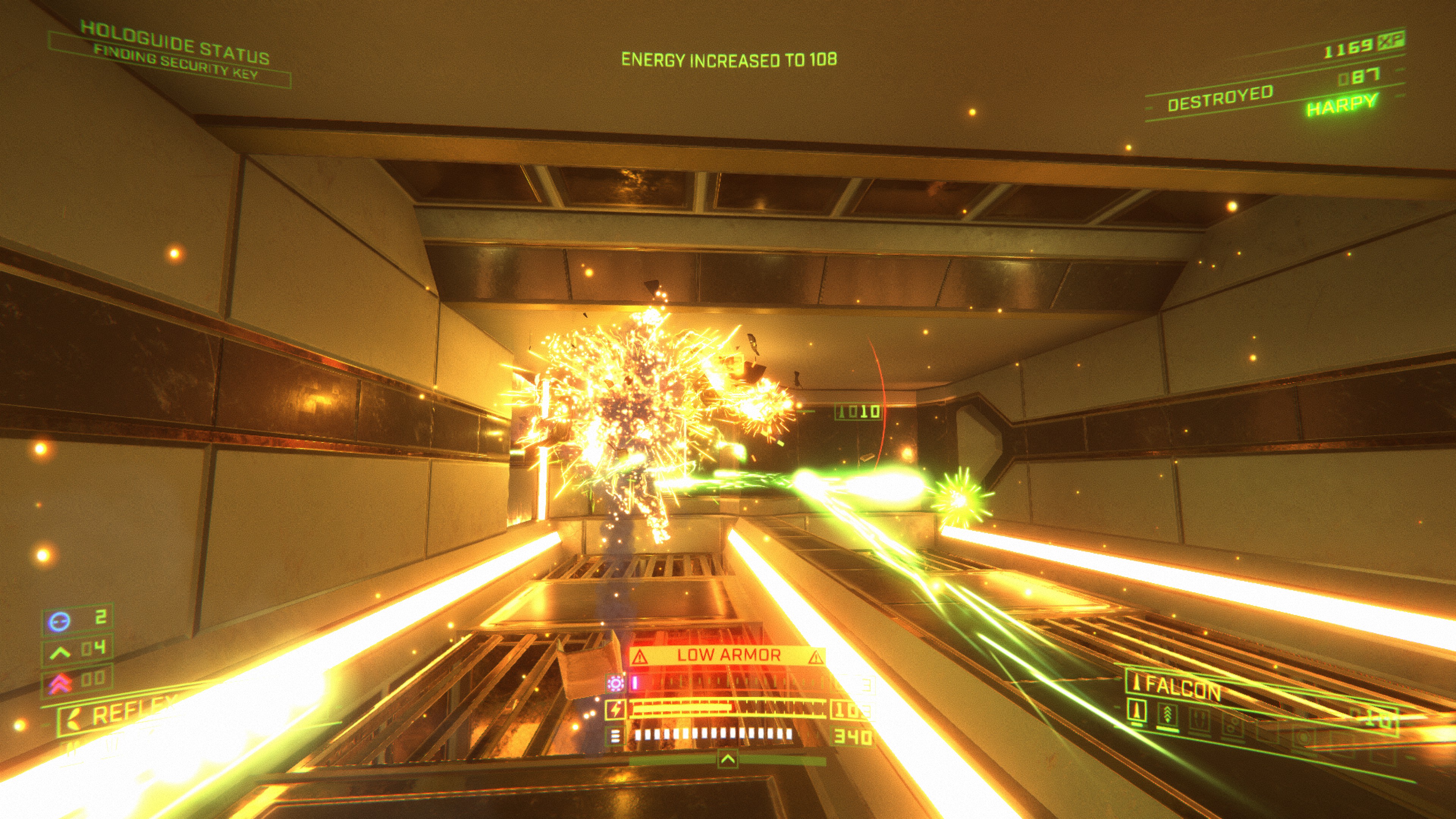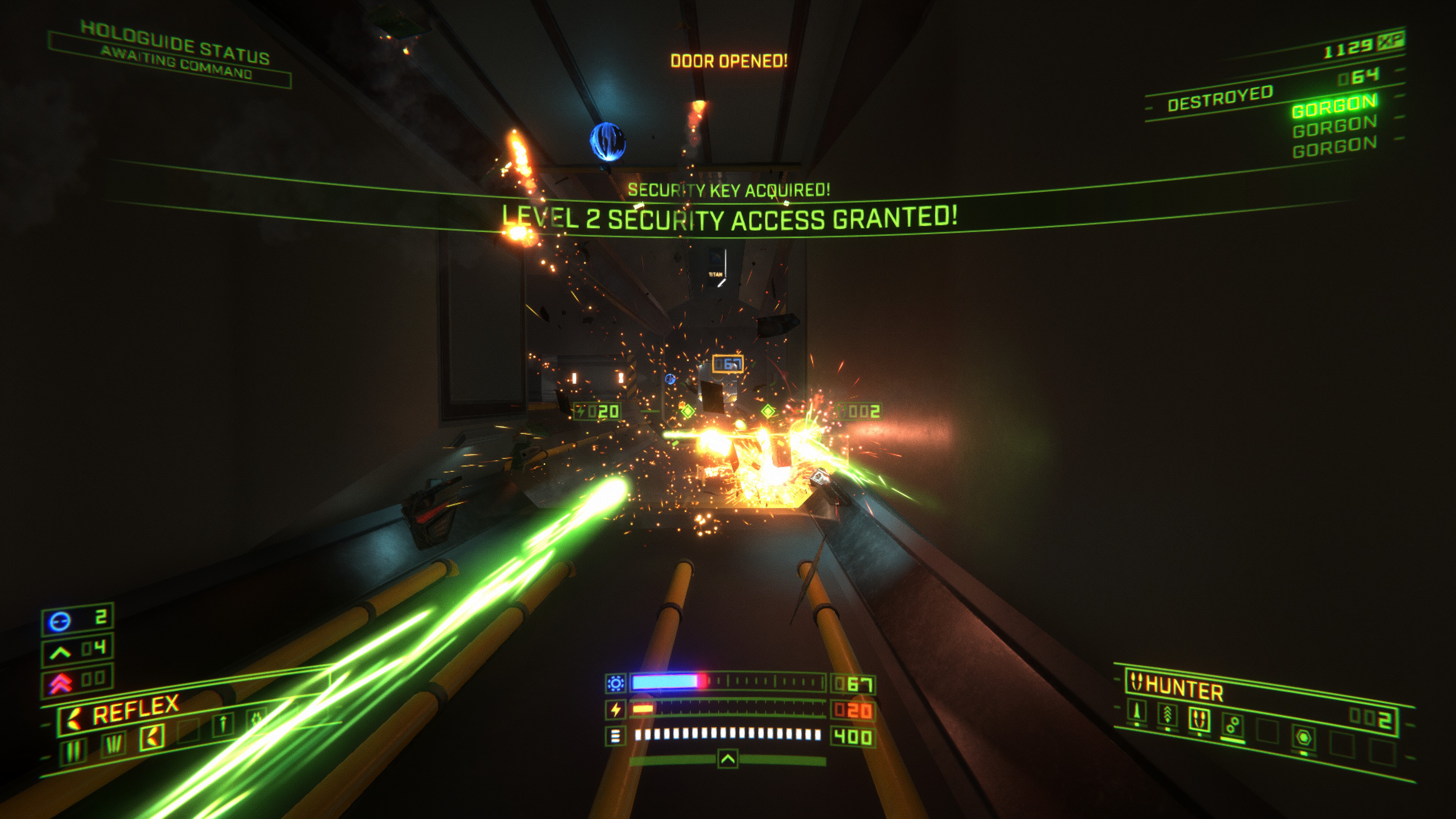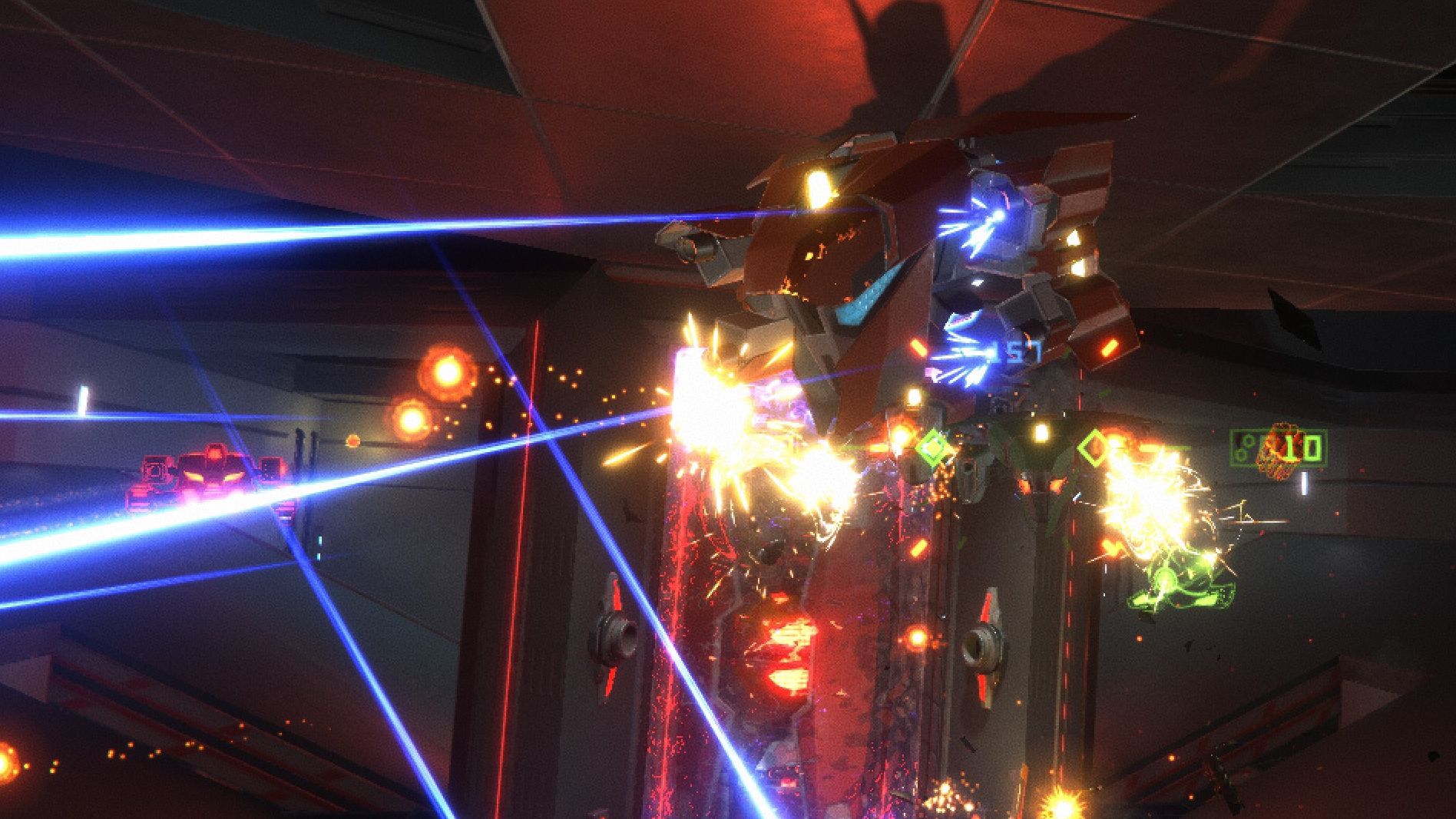Our Verdict
Beautiful combat livens up Overload's tedious levels.
PC Gamer's got your back
What is it? A zero-G arcade shooter set in futuristic facilities packed with drones.
Expect to pay $30/£24
Developer Revival Productions, LLC
Publisher Revival Productions, LLC
Reviewed on GeForce GTX 970, 16GB RAM, i5-2500k
Multiplayer 8 players
Link Official site
Overload is an arcade shooter that pits you against armies of drones armed with beautiful lasers. You attack each space dungeon in a little one-seat craft; your mission is to find the core, blast it, and then Millennium Falcon out of the nearest escape hatch as the facility goes up in fireworks.
It's a spiritual successor to Descent, so expect to lose track of what's up and what's down almost immediately. Levels are constructed from a bewildering array of vertical shafts and small tunnels, and they are heaving with floaty enemy mechs. Without the hologram button that shows you to your next objective I would still be lost in there with them now, exchanging rocket salvos in claustrophobic dogfights.
I was worried combat would be too woozy and disorienting, but great care has gone into giving your ship a smooth sense of momentum. You're free to point and roll your ship in any direction, but the game seems to subtly nudge your ship towards a readable plane. As a result I found it much easier to navigate the levels and adapt to sizeable combats than I once did playing Descent.

The guns also feel great. You have a primary weapon, which tends to be a rack of lasers, and a secondary slot, which usually houses mines, rockets, or other forms of ordnance. You can find new upgrades hidden in obscure corners of each level. I would like to see more meaningful differences between laser varieties, but there's enough there to hone a particular play style. You start with a pair of basic beams, but later you find flak, which fires ammo that detonates at mid-range, and alternatives that specialise in rapid fire attacks and long-range lancing.
There are 15 levels that you can tackle at five difficulty tiers. Though the levels are big they tend to be dark, dull and repetitive. This is easily the weakest aspect of the game, and in some rooms I found it too dark to see enemies properly. Overload just wants to set up no-frills combat encounters, but the environments make the journey a lot more grueling than it needs to be. The mission objectives are so basic I started to feel like a floating, heavily-armed lab rat after a while.
Though the moment-to-moment exchange of fire looks and sounds great, I didn't find combat tactically interesting enough to start repeating the levels at higher difficulty levels. There are more than 20 types of enemy drone, but most of them fall into just a few archetypes. There are bots with sawblades that gear up and ram you, there are larger ones with artillery, and smaller dogfighters that tend to be armed with lasers.

Overload throws these bots at you in increasingly stressful combinations. Fights are flashy and chaotic, and reward quick reflexes, but the tumbling spin-and-fire pattern of each fight doesn't evolve much, even with the addition of new weapons and upgrades.
I wouldn't call this a flaw, given that Overload is keen to preserve the purity of the Descent series, but you need to love that core combat dance a lot to get the most out of the game. My enthusiasm dwindled before I reached the end, but Descent veterans who want a modern update will find more to love, as will players looking to dip in occasionally for quick doses of zero-G combat. There's a free level editor too, so hopefully the community will produce some extra missions, ideally with a few extra light bulbs.
Beautiful combat livens up Overload's tedious levels.
Part of the UK team, Tom was with PC Gamer at the very beginning of the website's launch—first as a news writer, and then as online editor until his departure in 2020. His specialties are strategy games, action RPGs, hack ‘n slash games, digital card games… basically anything that he can fit on a hard drive. His final boss form is Deckard Cain.



